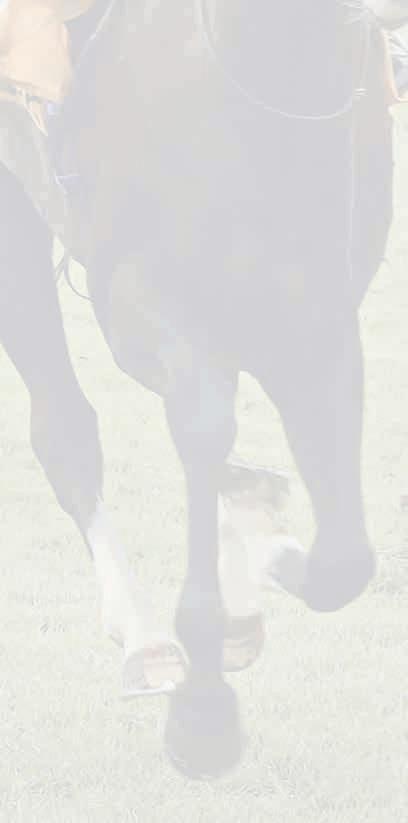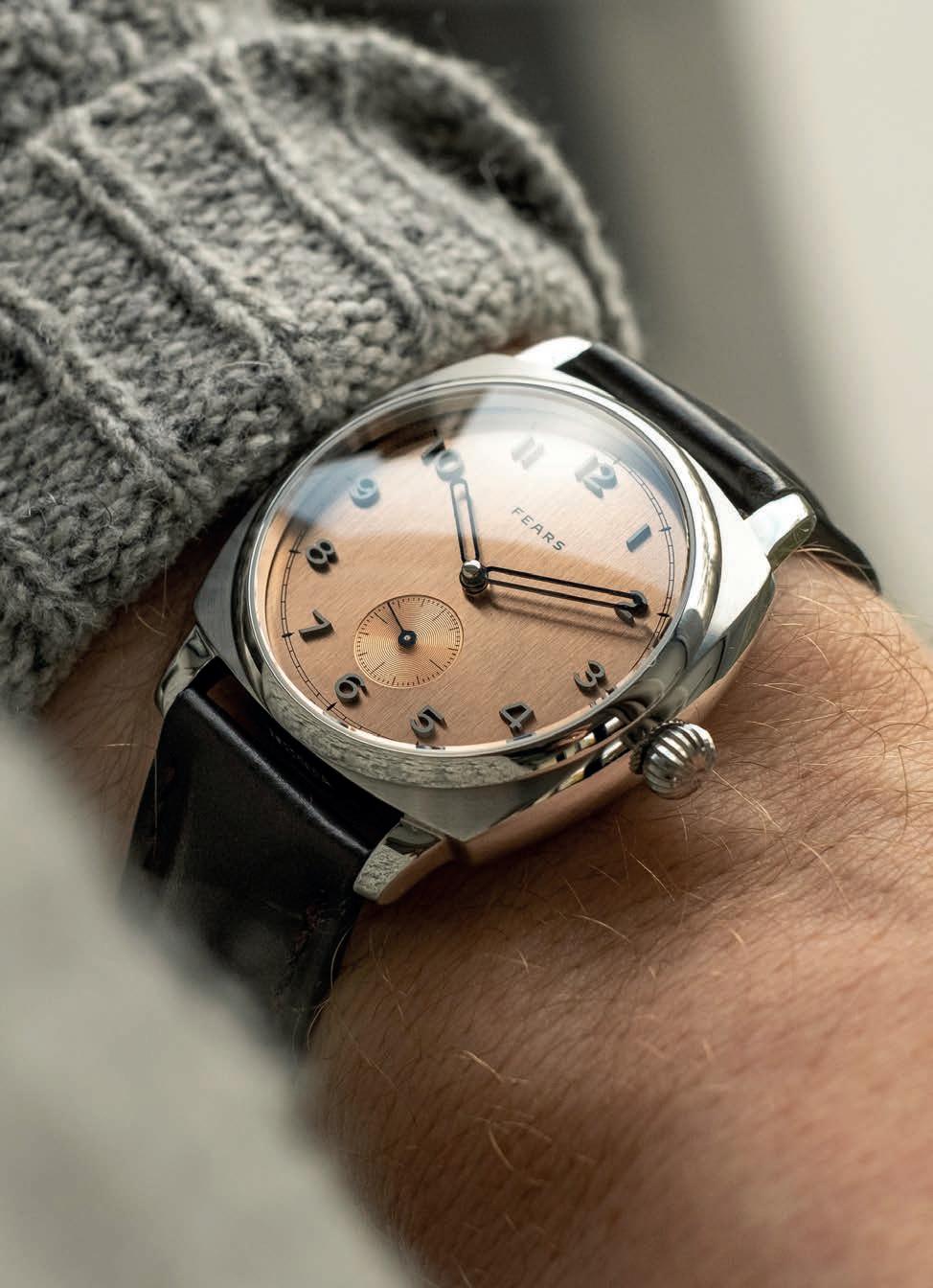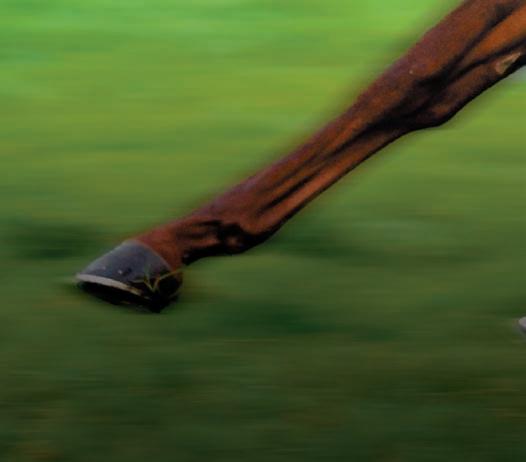
4 minute read
SPORT TO SET THE PULSES RACING
from Burlington's - April 2023
by CPL One
Pounding hooves, racing hearts, pomp and pageantry – the Sport of Kings has it all. With the Flat season getting under way in the spring, we look ahead to four of the most iconic races in the British sporting calendar
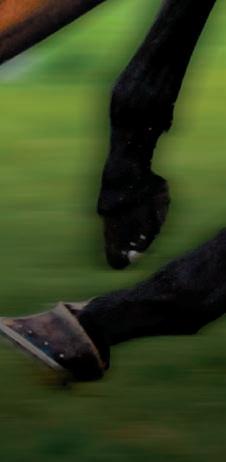
Advertisement
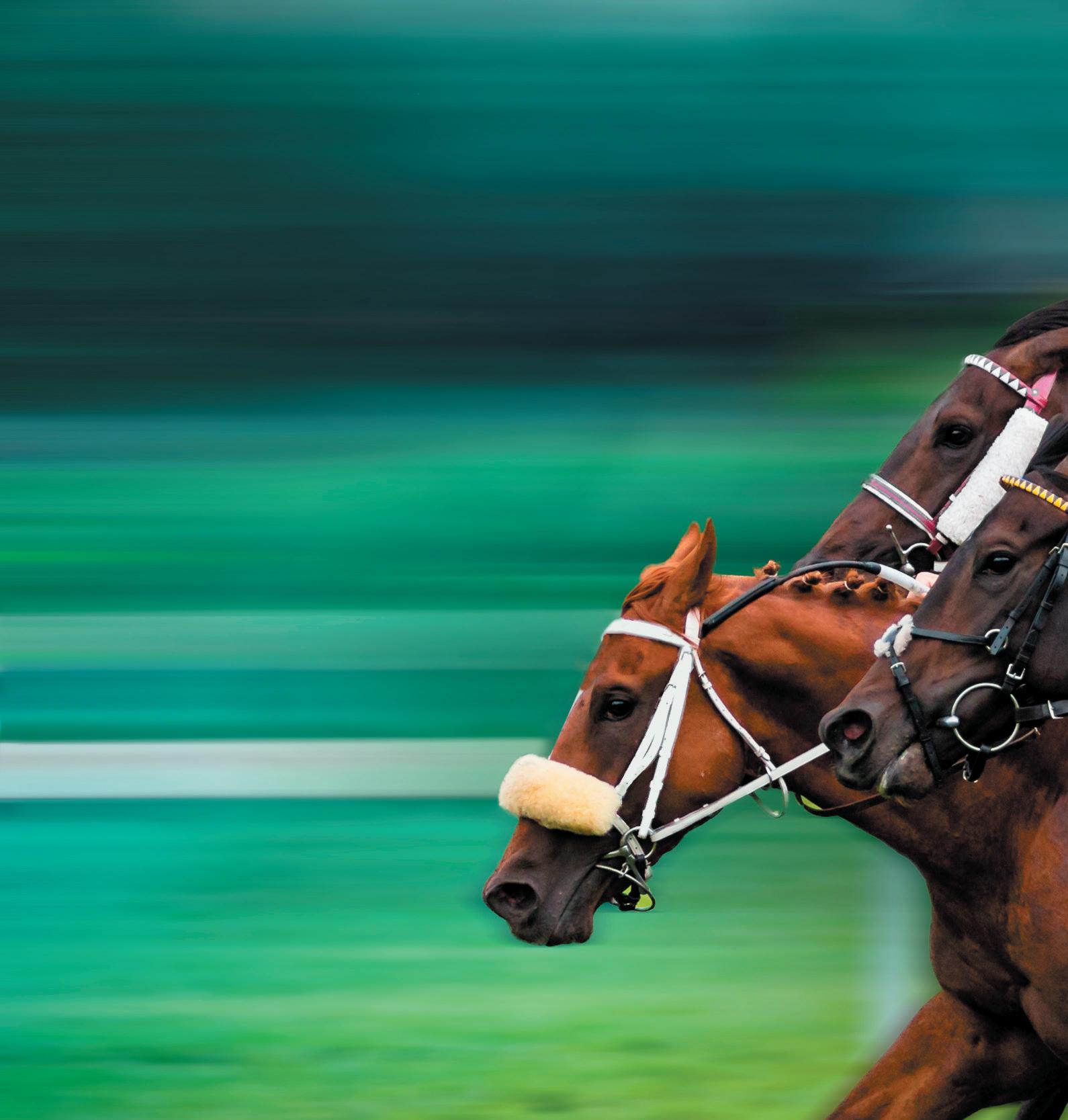
Words: Amy Bennett

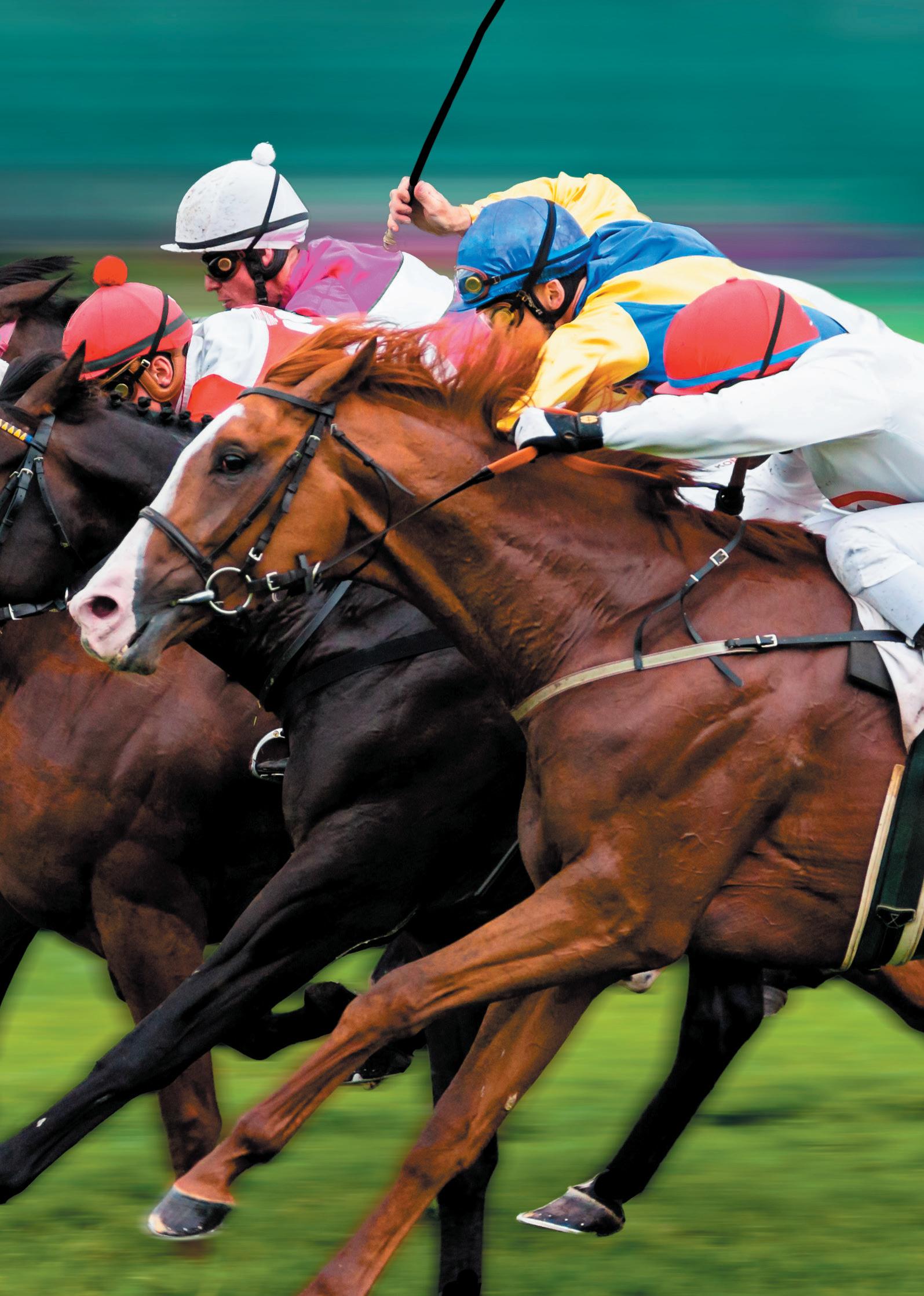
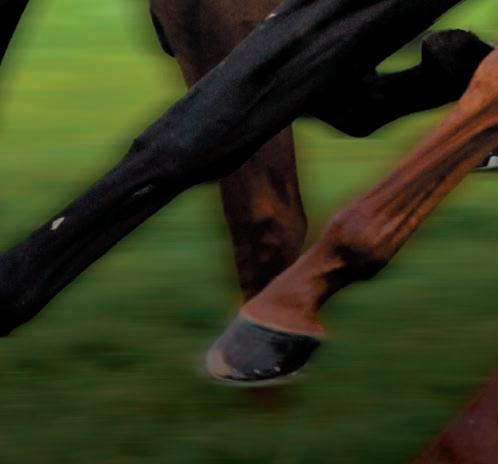
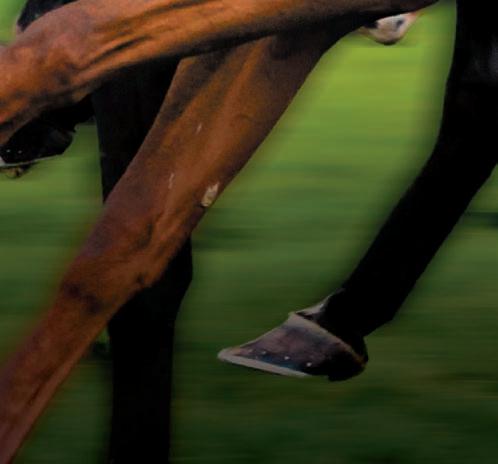
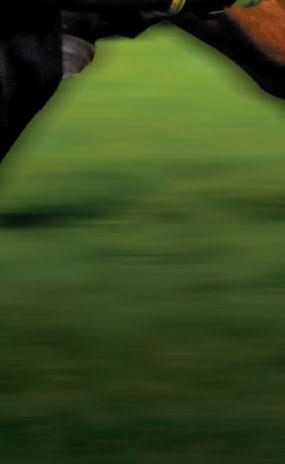
Spring in the air heralds the return of Flat racing – the true Sport of Kings, where excitement and adrenaline meet a cavalcade of drama and glamour.
From sheikhs and royalty to those with just a tiny share in a syndicate-owned horse, horseracing is a sport for all to enjoy. And what better way to welcome the return of the Flat season than to take a closer look at some of the most prestigious races at the start of the British season?
Classic Action
e Grand National may be one of the most-watched sporting events in the world, but it is also one of the last major jumps meetings of the season. As soon as those horses cross the line, attention turns fully to the Flat.
While jumps racing features older horses, with fan favourites returning to action each winter, the pinnacle of a racehorse’s career on the Flat is at three. Plenty of riches lie ahead for older horses, of course, but only a three-year-old can contest the ve ‘Classics’; the iconic, storied races that mark a career high – and usher in a lucrative stud career. e ve Classic contests in Britain gave birth to races of similar names across the world – think the Kentucky Derby, Prix du Jockey Club (French Derby), or the lucrative Derbys in Australia, Hong Kong, Japan and South Africa, to name but a few.
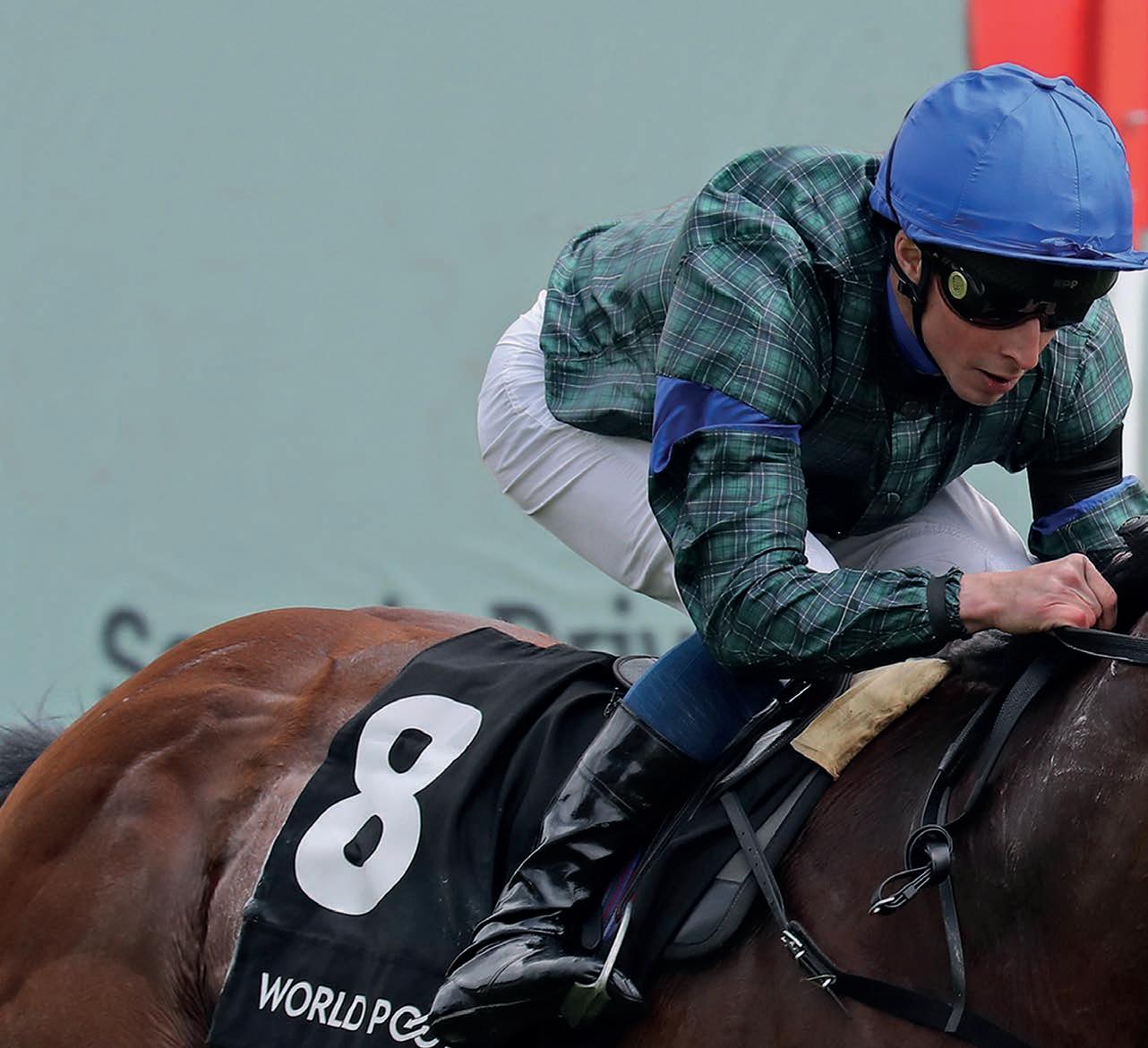
However, the quintet of British races are the true originals. Four of the ve take place in the opening months of the Flat season, with the nal race – the St Leger, the oldest Classic in the world, rst run in 1776 – due to take place at Doncaster in September.
RACING’S HEADQUARTERS
Racing returns to Newmarket, Su olk, the historic home of British horseracing, in April, and the racecourse plays host to the rst two Classics of the season in early May. e 2,000 Guineas, open to colts and llies, was rst run in 1809, while the 1,000 Guineas, for llies only, is the ‘newest’ of the ve Classics, run for the rst time in 1814.
Both the 2,000 Guineas and the 1,000 Guineas are run over a straight mile. e races take place on the Rowley Mile course, the stretch of turf named a er a favourite horse of King Charles II. It was the Merry Monarch’s grandfather, King James I, who rst started racing in Newmarket in the early 1600s, but it was Charles II who truly cemented its stature, setting up a court in the Su olk market town so as to fully enjoy the sport on o er – as well as the company of a certain Nell Gwyn.
Races over distances of four, or even eight, miles were in vogue at the time of Charles II, but speed is king in modern horseracing. As such, the winner of the 2,000 Guineas will, in time, be rewarded with a hugely lucrative career as a stallion, while the future o spring of the 1,000 Guineas heroine will also be highly prized. is year, the three-day Guineas Festival will coincide with a truly royal occasion, as the 2,000 Guineas takes place on the same day as the coronation of King Charles III. What better place to raise a glass to a new monarch than at the very heart of British racing? thejockeyclub.co.uk/newmarket

A range of hospitality options is available, so every moment of the action can be enjoyed in luxurious surroundings. Private boxes are available on the fourth oor of the Millennium Grandstand, with panoramic views of the racecourse that can be enjoyed from a private balcony, along with outstanding hospitality in elegant surroundings. Or, for £320 a person, the Champions Gallery restaurant o ers a champagne reception, three-course meal, and a traditional a ernoon tea – plus there’s a tipster on hand to keep the winners coming!
Epsom Glories
A month a er the excitement of the Guineas, attention switches to the Derby and the Oaks, both run over a mile and a half at Epsom Downs racecourse in Surrey.

e Derby has long been the pinnacle of sporting achievement, taking place for the rst time in 1780. Famously named when the 12th Lord Derby won a coin toss against Sir Charles Bunbury, it was the latter who saw his colours carried to success in the rst-ever running of the race, when Diomed triumphed. Since then, some of the most famous names in the sport have enjoyed success.
First broadcast by the BBC on radio in 1927, the Derby was the rst outdoor sporting event to be televised when John Logie Baird used cameras and the BBC’s transmitter at the 1931 running of the race.
Renowned horse breeder Federico Tesio famously once said: ‘ e thoroughbred exists because its selection has depended not on experts, technicians or zoologists, but on a piece of wood: the winning post of the Epsom Derby.’ No words could give a better insight to the vital importance of the Derby – and the future stud career of the winner.
A day before some of the best colts (and llies) in the land line up for the Derby, a eld of world-class llies will compete in the Oaks, run over the same course and distance as the Derby.

e Oaks, named a er the home of the 12th Lord Derby, is actually a year older than the Derby. e infamous coin toss took place at a party held to celebrate that rst running of the Oaks Stakes, won by Lord Derby’s Bridget in 1779.
Both races, as well as the valuable Coronation Cup, for older horses, are run over the unique horseshoe racecourse on Epsom Downs. Gone are the days when the race was so important that even parliament shut down for the day so MPs could watch, but crowds still ock to the Downs each year, with the traditional funfair inside the track, and open-topped London buses lining the rail on the home straight.
Private boxes, with a private balcony overlooking the racecourse and views of the London skyline, o er a more sophisticated way to enjoy the action on Derby Day. Hospitality packages priced at £929 per person include a sumptuous four-course lunch. A range of other hospitality options o er something for everyone to soak up the atmosphere of a uniquely British sporting event.
thejockeyclub.co.uk/epsom
